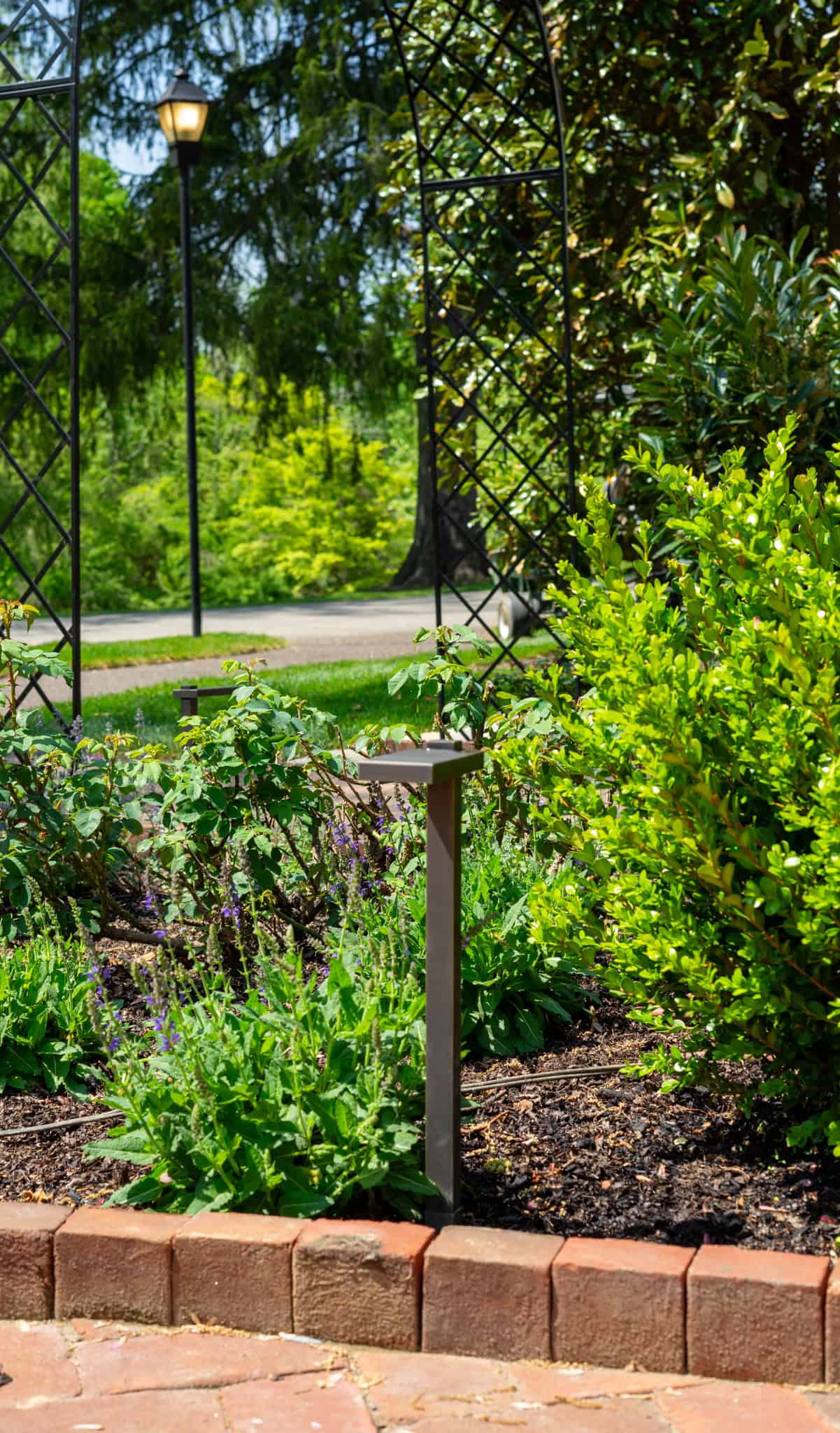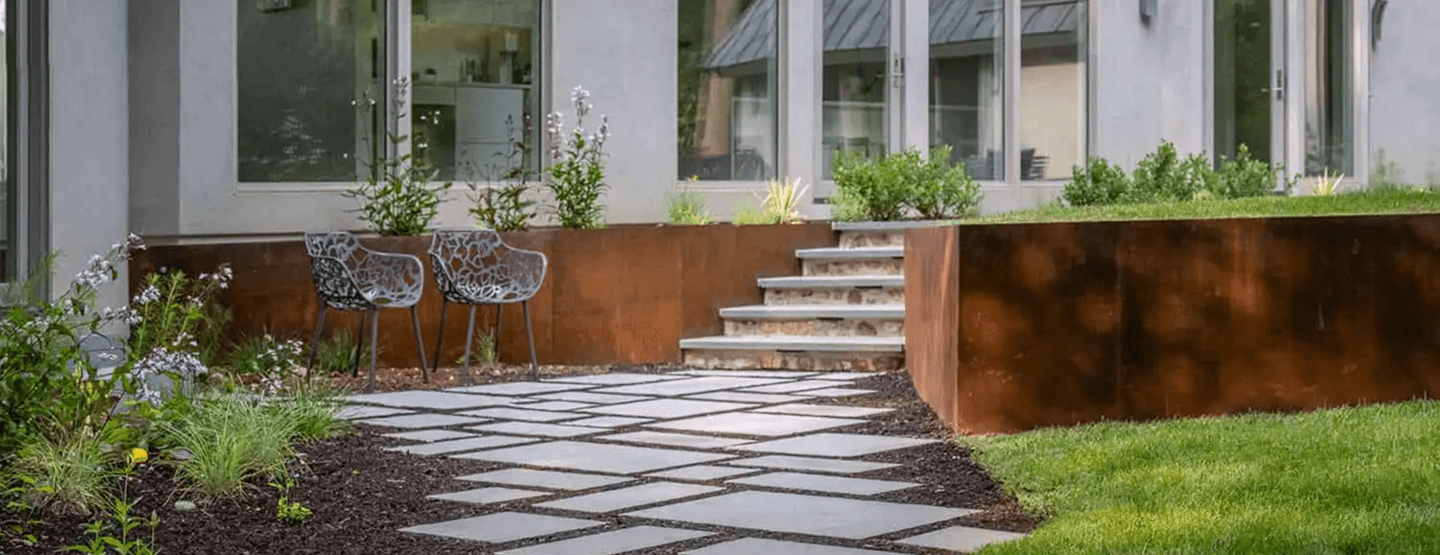Introduction
Imagine this: you’re sitting in your backyard, dreaming about the perfect patio where you can host summer barbecues, relax with a good book, or enjoy a glass of lemonade with friends. You might think, “I can do this myself! How hard can it be?” It sounds great, doesn’t it? But before you grab your tools and get started, let’s pause for a moment.
Many people jump into DIY patio projects with excitement, only to find themselves facing unexpected challenges. If you’re feeling overwhelmed or worried about making costly mistakes, you’re not alone. We understand the concerns you have: Will it turn out the way I imagined? Am I really equipped to do this?
At Kelly Masonry, we specialize in building beautiful patios and have seen firsthand the common pitfalls that DIYers encounter. In this article, we’ll explore the biggest issues you might face with DIY patio projects, so you can decide whether to tackle it yourself or call in the experts. By the end, you’ll have a clearer picture of what to expect, and hopefully, a better idea of how to create the outdoor space you’ve always wanted.
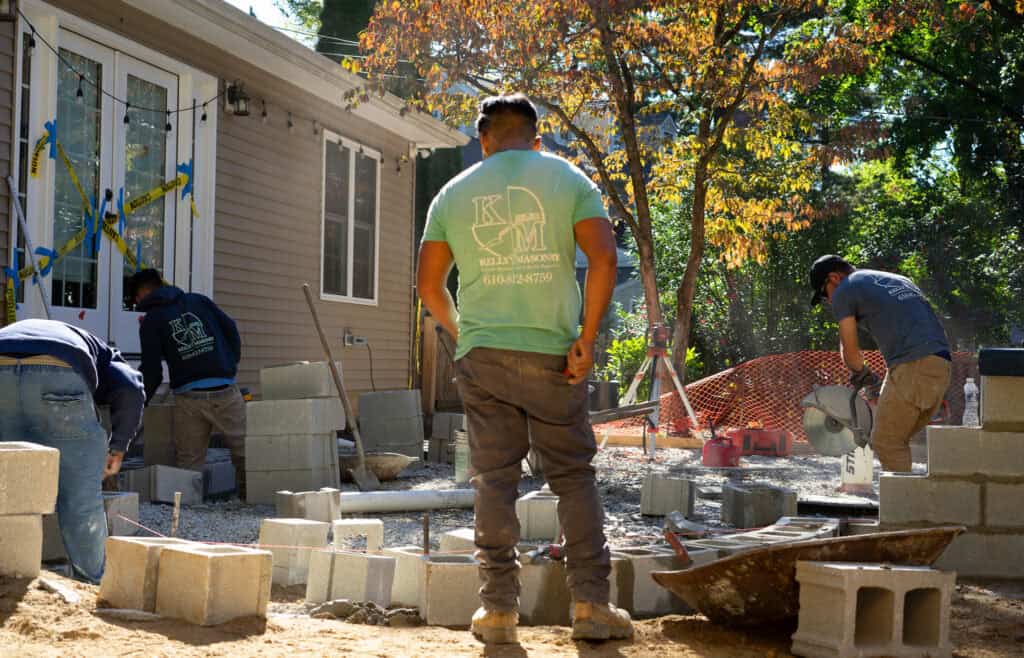
1. Lack of Proper Planning
Importance of Planning Before Starting
One of the most critical steps in any DIY project is planning. Think of it like preparing for a big test at school. If you don’t study, you might not do well, right? The same goes for patios. Without a solid plan, you might end up with a patio that’s too small, in the wrong spot, or doesn’t fit your style.
Before starting, take time to sketch out your ideas. Measure your yard and determine how much space you can dedicate to your patio. Consider factors like sunlight, shade, and how you want to use the space. Planning not only helps you visualize your dream patio, but it also saves you from making costly mistakes later on.
2. Inadequate Knowledge and Skills
Common Skills Needed for Patio Installation
Building a patio requires some specific skills, and it’s essential to know what you’re getting into. You’ll need to understand basic construction concepts, including leveling, laying materials, and drainage. It’s kind of like putting together a puzzle; if you don’t know how the pieces fit, you might end up with a mess.
The Risks of Insufficient Knowledge
If you rush into the project without knowing what to do, you might face issues like uneven surfaces or drainage problems. Imagine having a patio that collects water like a pond every time it rains. That’s not what you want, right? Knowledge is power, and doing some research or asking questions can make all the difference.
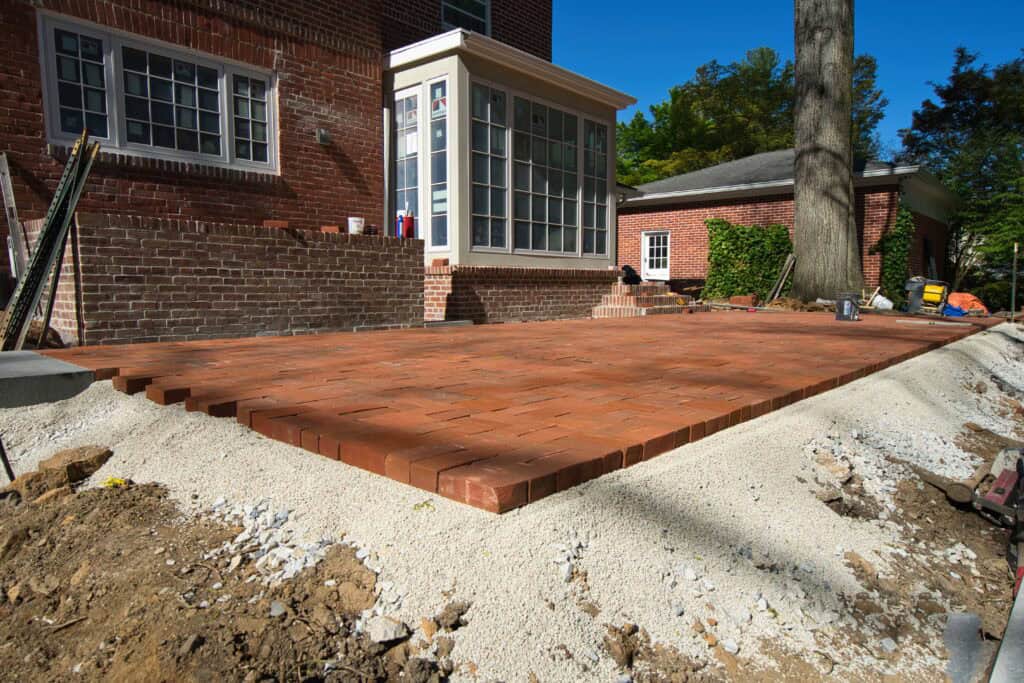
3. Choosing the Wrong Materials
Common Material Mistakes in DIY Patio Projects
Another big issue is choosing the right materials for your patio. Many DIYers might think they can save money by picking cheaper options, but this can lead to bigger problems down the road. For example, some materials may not hold up well against weather or may require more maintenance than you anticipated.
How Material Choices Affect Durability and Aesthetics
When selecting materials, consider their durability and how they’ll look in your space. Are you looking for something that blends in with nature or stands out? Make sure to choose materials that fit both your style and your budget. Remember, a beautiful patio is all about the right materials!
4. Improper Installation Techniques
Common Installation Mistakes
Even with the best intentions, improper installation techniques can turn your DIY dream into a nightmare. For example, if you don’t level the ground properly before laying pavers, you might find that your patio isn’t even. This can lead to cracks and uneven surfaces, which can be dangerous and unappealing.
The Long-Term Impact of Poor Installation
Imagine inviting friends over and they trip on a raised paver—yikes! Poor installation can lead to safety hazards and costly repairs later. Taking the time to learn proper techniques or seeking advice can save you a lot of trouble.
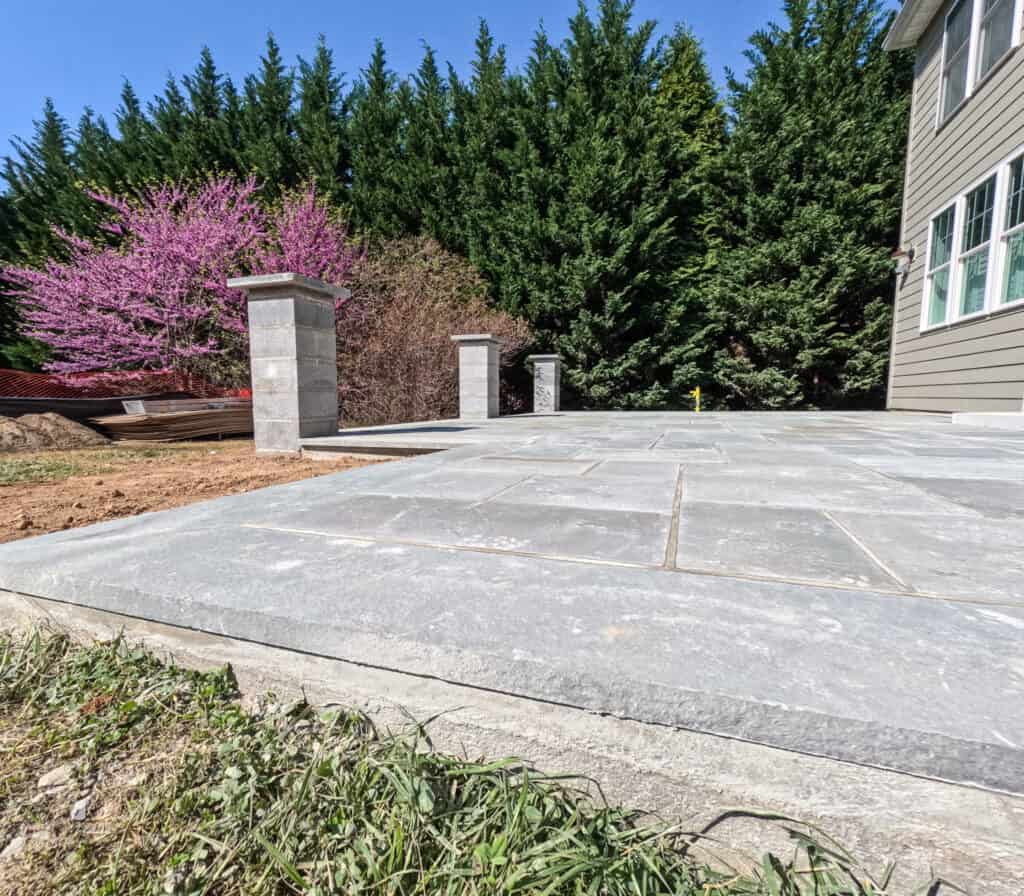
5. Underestimating Costs
Hidden Costs in DIY Patio Projects
Many people start a DIY patio project with a budget in mind, but they often forget to account for hidden costs. You might think you only need to buy materials, but what about tools you don’t own? Or unexpected expenses for additional supplies?
Budgeting for Unexpected Expenses
It’s crucial to create a detailed budget that includes everything, from materials to tools and even a little extra for surprises. If you haven’t completed a project like this before, budgeting may be difficult. Having a financial cushion can make your project less stressful and more enjoyable.
6. Time Consumption
How DIY Projects Can Take Longer Than Expected
DIY projects often take longer than anticipated. You might think, “I’ll just work on it this weekend,” but once you get started, you realize it’s a bigger job than you thought. Between planning, gathering materials, and actually building, time can slip away.
The Cost of Time in DIY vs. Professional Help
Consider how valuable your time is. If your DIY project takes weeks longer than expected, you might end up frustrated and tired. Sometimes, hiring a professional can save you time and stress, allowing you to enjoy your new patio sooner.
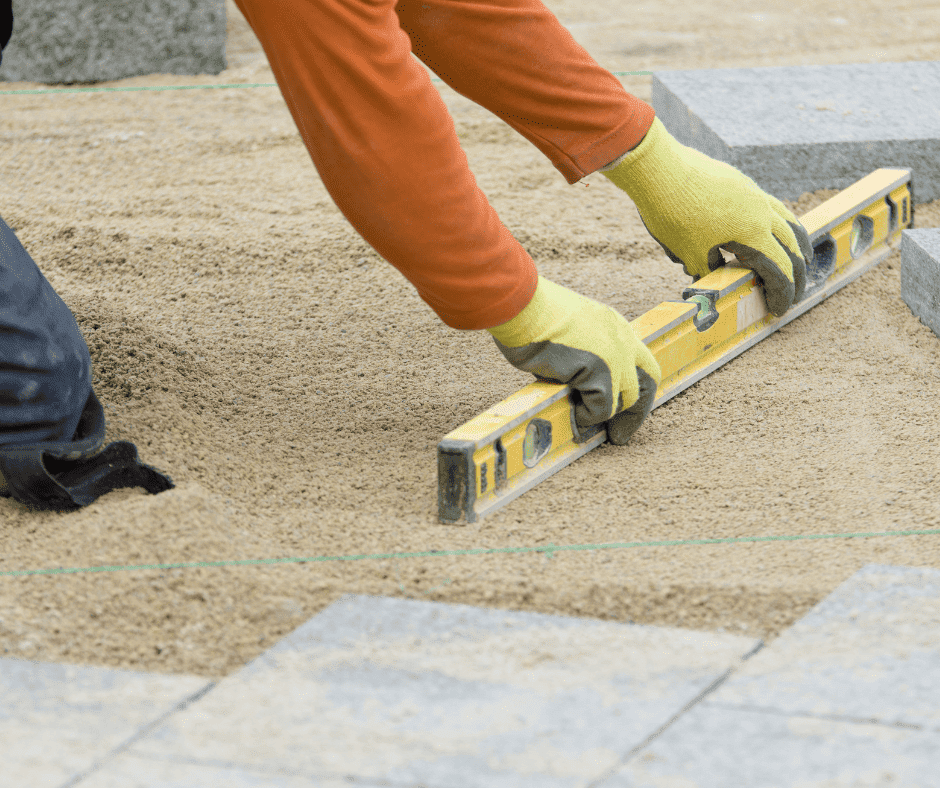
7. Weather-Related Challenges
How Weather Can Affect Your Patio Project Timeline
Weather can be unpredictable, and it can significantly impact your DIY patio project. Rain can delay your work, and extreme heat can make it uncomfortable to be outside. You might find yourself waiting for the right conditions to continue.
Preparing for Unforeseen Weather Conditions
To combat this, check the weather forecast before starting and be flexible with your timeline. Consider having a backup plan or an indoor project you can work on in case of bad weather. Being prepared can help you stay on track.
8. Permits and Regulations
Understanding Local Building Codes
Did you know that many areas require permits for building patios? It’s like needing permission to have a big party at school. If you don’t check the local regulations, you might run into trouble with your city or neighborhood.
The Importance of Obtaining Necessary Permits
Before you start digging, make sure to research what permits you need and how to obtain them. Ignoring this step could lead to fines or having to tear down your hard work. It’s always better to be safe than sorry!
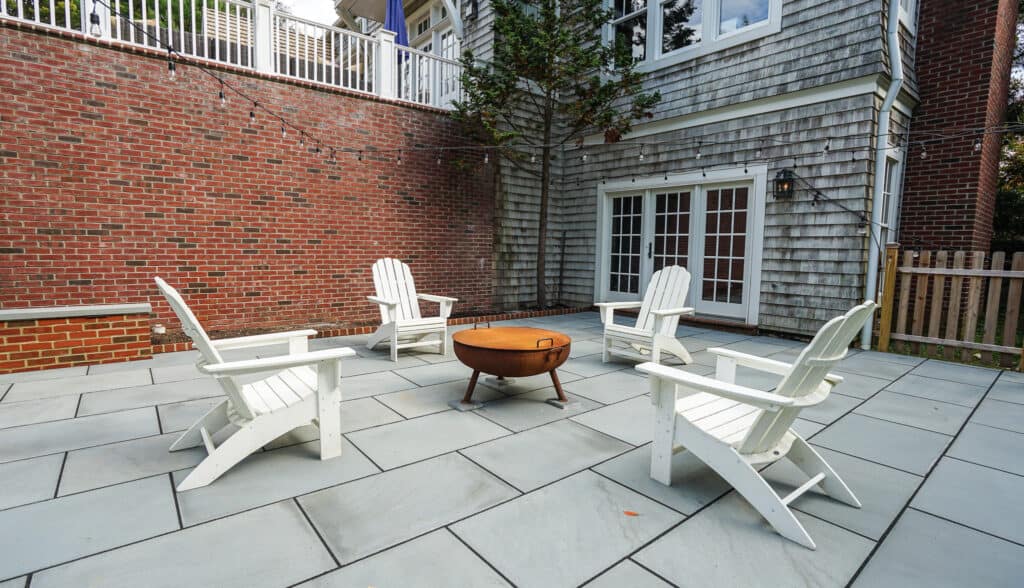
9. No Equipment
While the idea of building your own patio might seem appealing, the reality is that it requires a significant investment in both time and equipment. Many DIY enthusiasts underestimate the tools and resources needed for a successful project. Here’s s list of equipment you’ll need, which can add up quickly:
- Excavation Tools: Shovels, pickaxes, and a wheelbarrow are essential for clearing the area.
- Leveling Equipment: A laser level or a string level ensures a flat surface, which is crucial for drainage and stability.
- Compaction Tools: A plate compactor or tamper is necessary to prepare the base and prevent future settling.
- Cutting Tools: A masonry saw or wet saw is needed for cutting stones or pavers to size.
- Safety Gear: Gloves, goggles, and knee pads will protect you from injuries during the project.
- Measuring Tools: Tape measures, squares, and markers help ensure accurate layout and design.
- Transportation: A truck or trailer will be needed to haul materials, which can be a logistical headache.
10. Maintenance Challenges
Long-Term Care for DIY Patio Projects
After putting in all that effort, the last thing you want is to have a patio that falls apart after a few months. Maintaining your patio is essential for its longevity. Some materials require more upkeep than others, and knowing how to care for your patio will help it look great for years.
Common Maintenance Issues Faced by DIYers
Many DIYers may not realize how much care is needed. For instance, not sealing pavers can lead to staining and wear. Make sure to educate yourself about maintenance before finishing your project to avoid any surprises.
11. When to Call in Professionals
Signs You Need Professional Help
Sometimes, the best choice is to call in the experts. If you find yourself feeling overwhelmed or unsure about any part of the process, it’s okay to ask for help. Signs that you may need a professional include lack of progress, confusion about materials, or feeling out of your depth.
Benefits of Hiring a Patio Contractor
Hiring a professional contractor can save you time, stress, and ensure a beautiful, durable patio. They have the skills and experience to navigate potential issues, leaving you free to enjoy your outdoor space without worry.
Conclusion
In conclusion, while DIY patio projects can be exciting, they come with their share of challenges. From planning and choosing materials to understanding installation techniques and dealing with permits, there’s a lot to consider. If you’re feeling unsure or overwhelmed, remember that it’s perfectly okay to seek professional help.
At Kelly Masonry, we’re here to assist you in creating the patio of your dreams. Whether you choose to tackle it yourself or hire experts, understanding these common issues will help you make informed decisions. Now that you’re aware of the potential pitfalls, you’re better equipped to embark on your patio project journey. Happy building!
-
Pros and Cons of Techo-Bloc for Outdoor Hardscaping
Homeowners across Delaware County and the Main Line are asking: Is Techo-Bloc worth the investment? At Kelly Masonry, we get this question all the time. Our clients want something beautiful and high-end, but they also want to make a smart long-term decision. That’s where this article comes in.
-
Outdoor Lighting Systems: A Review of Low-Voltage vs Solar Options
Outdoor lighting isn’t just about visibility—it’s about safety, curb appeal, and extending your living space beyond four walls. Whether you choose a plug-and-play solar system or invest in a professionally installed low-voltage design, the key is choosing what works best for your space and your lifestyle.
-
How to Plan a Landscape Design That Fits Your Lifestyle
Creating an outdoor space that reflects your lifestyle is more than a design challenge—it’s an opportunity to shape your daily routine, boost your home’s value, and turn your yard into a personal sanctuary. If you’re in Springfield, PA, and thinking about investing in your landscape, this guide walks you through how to plan a landscape…


